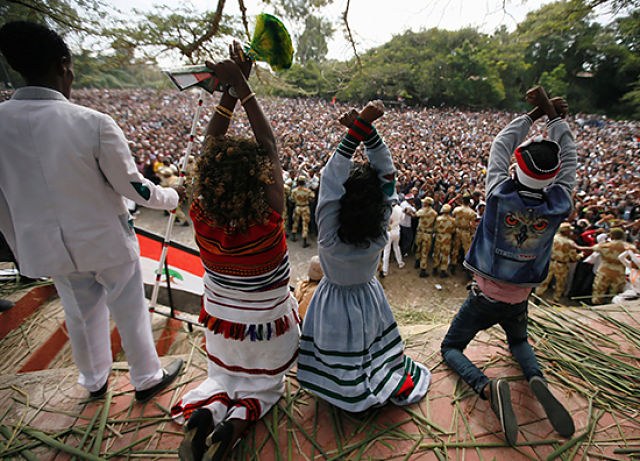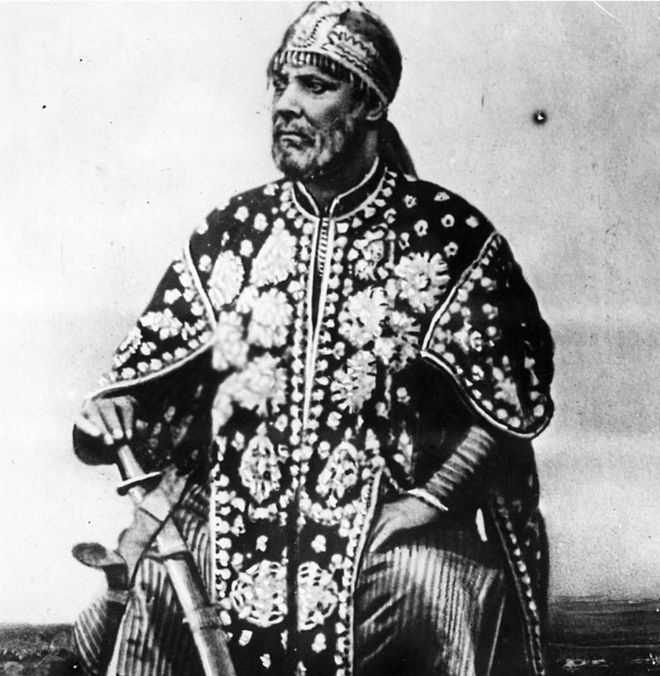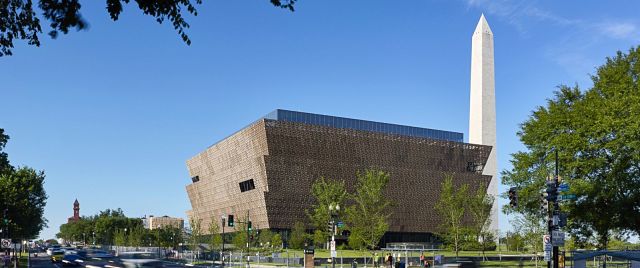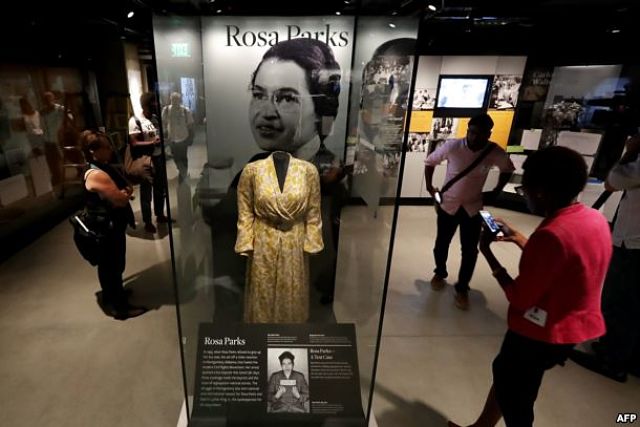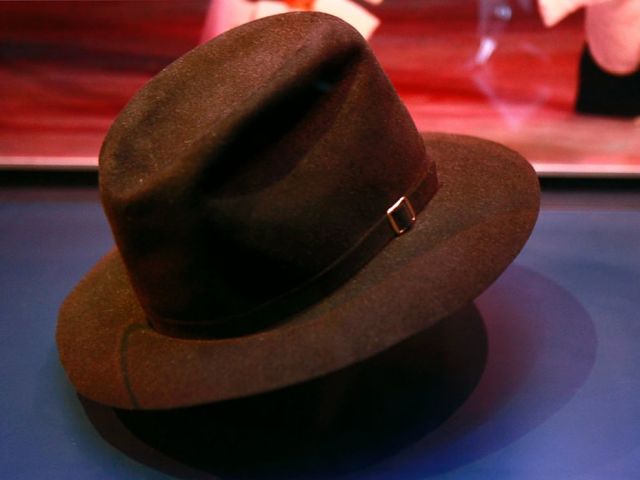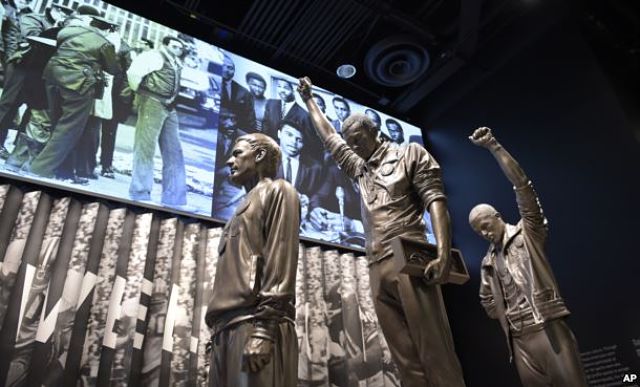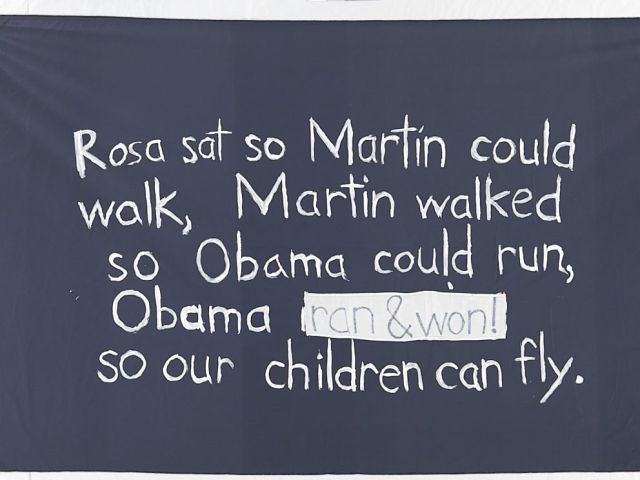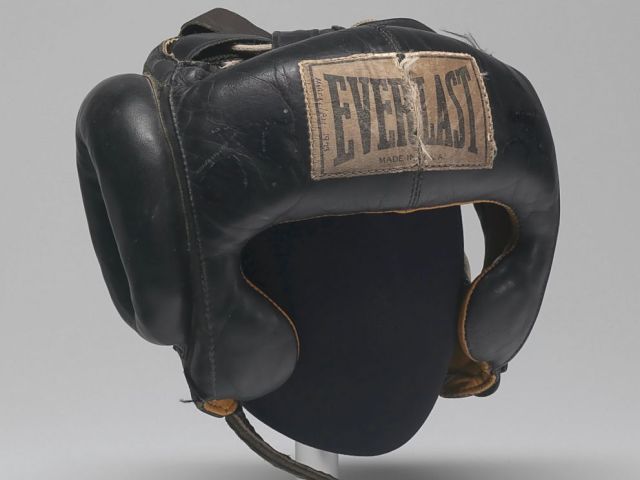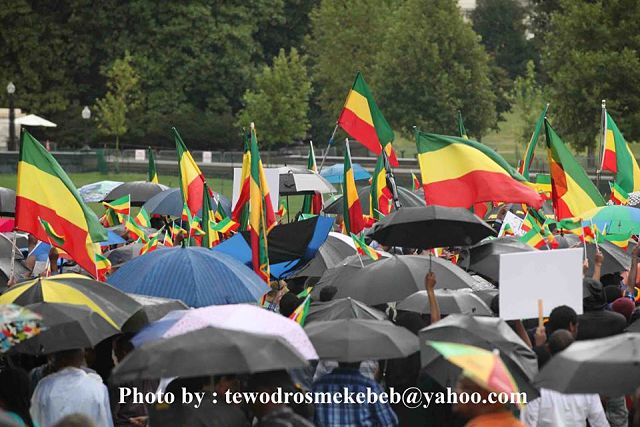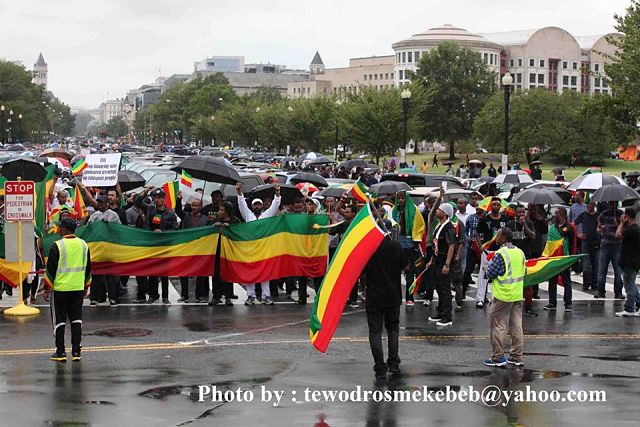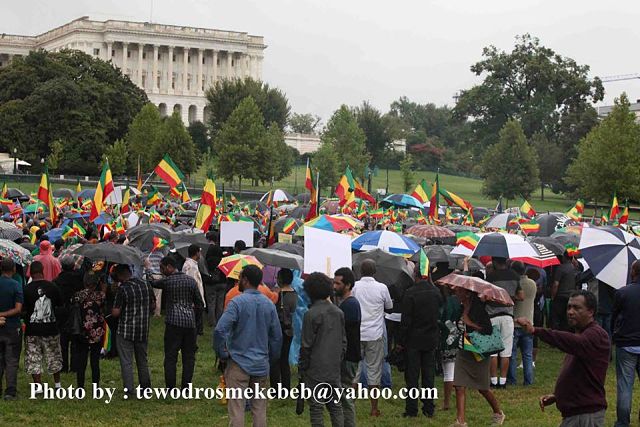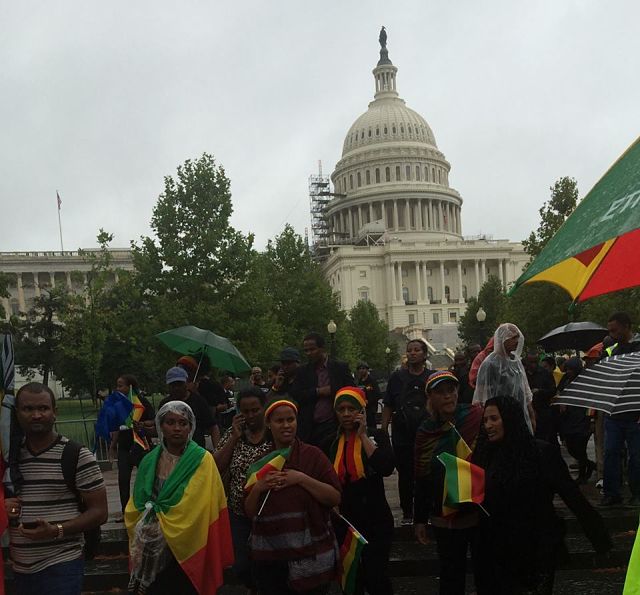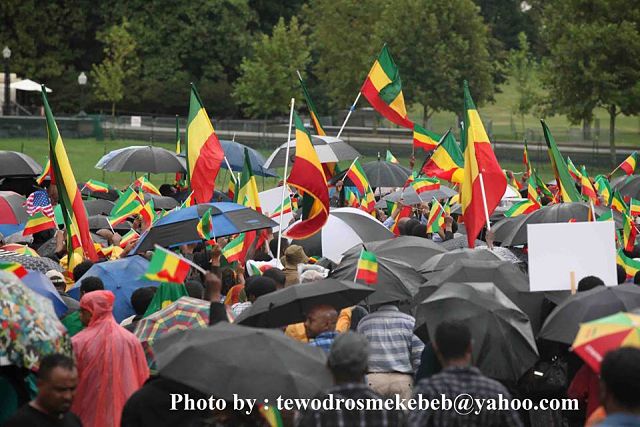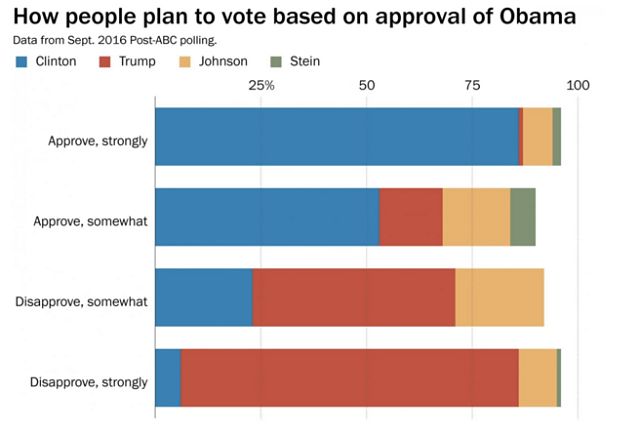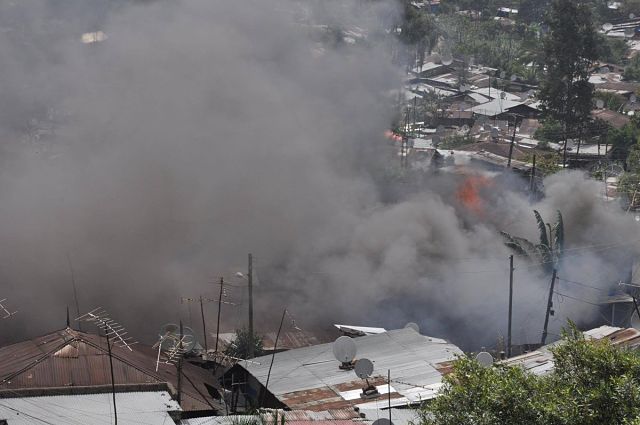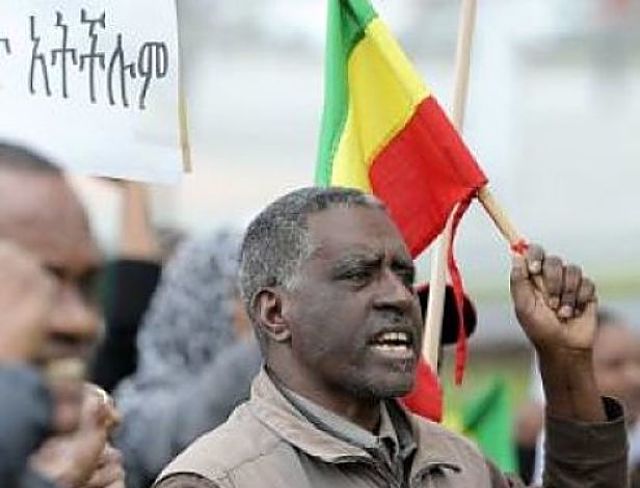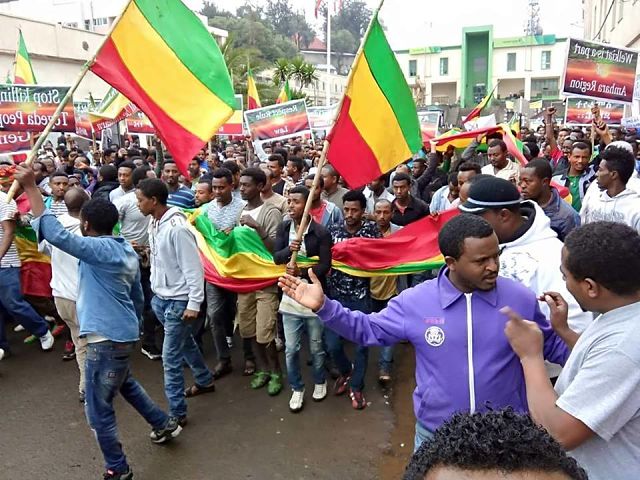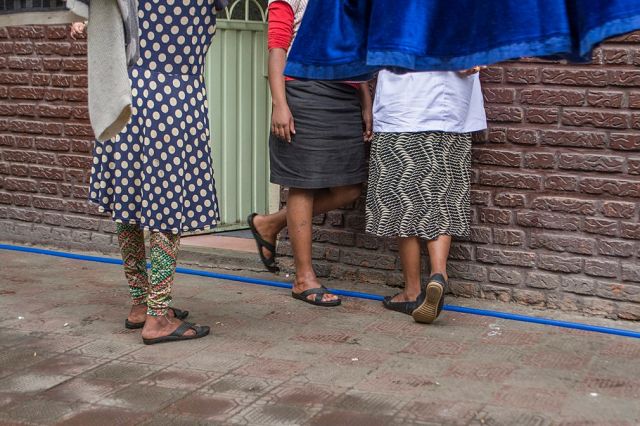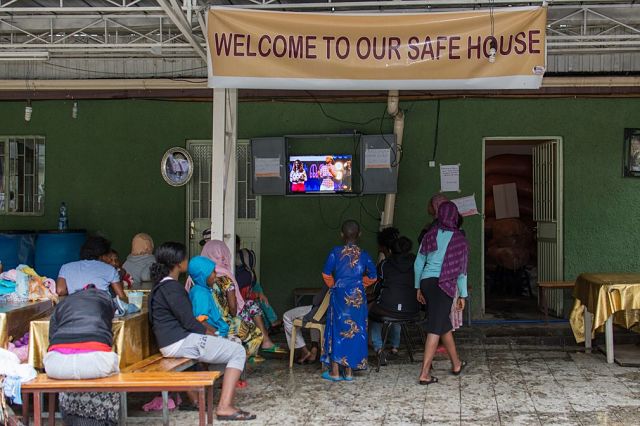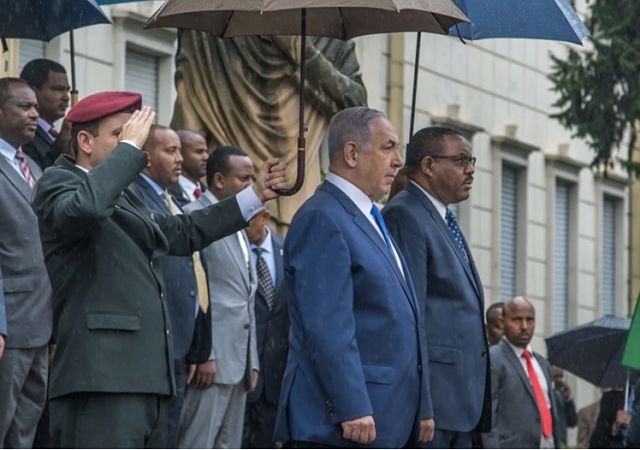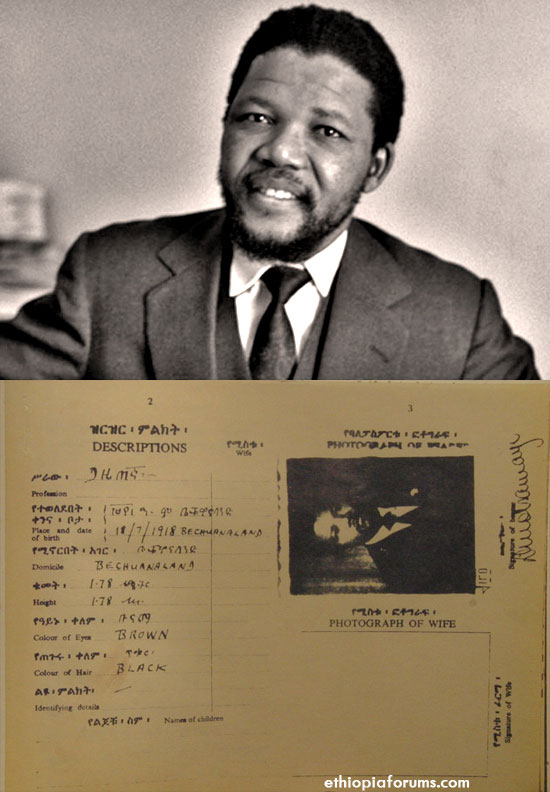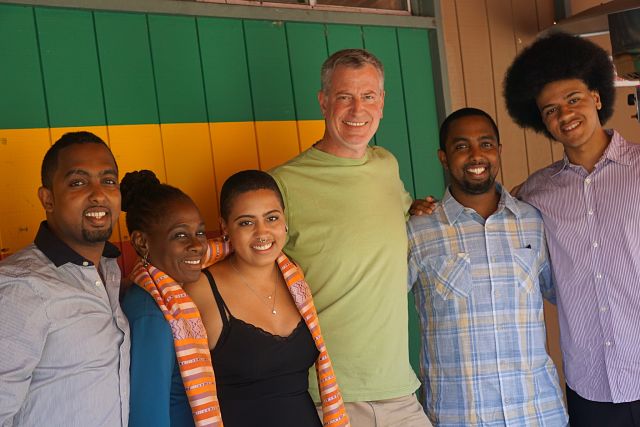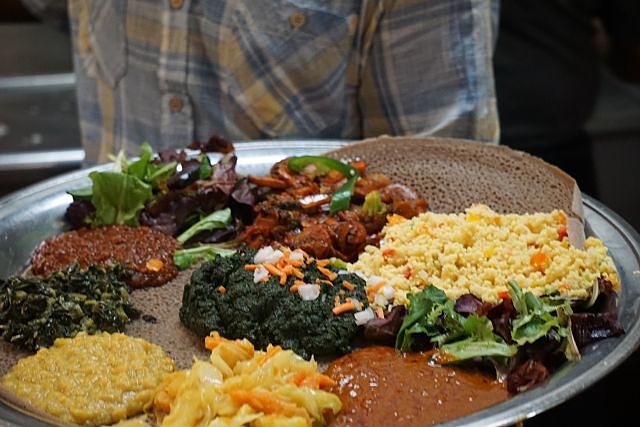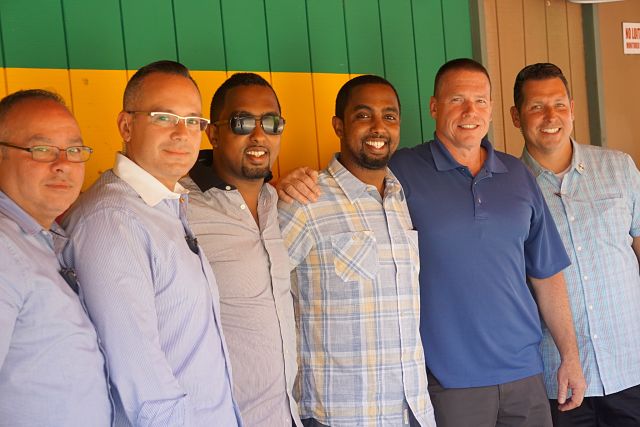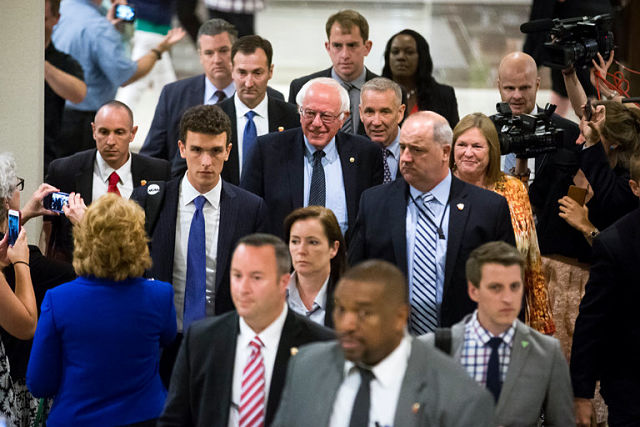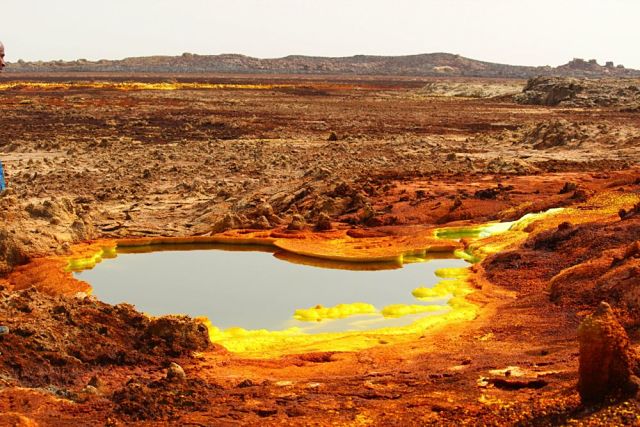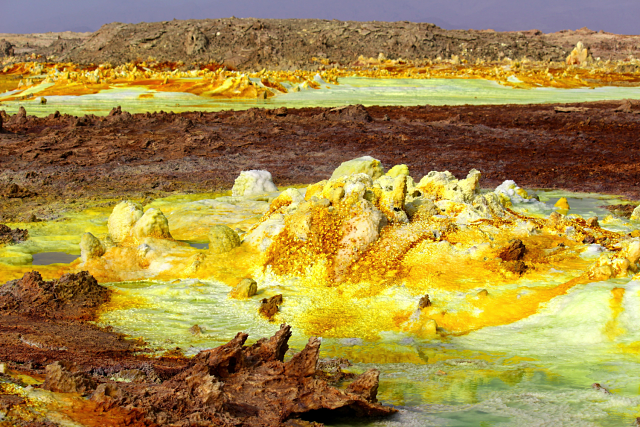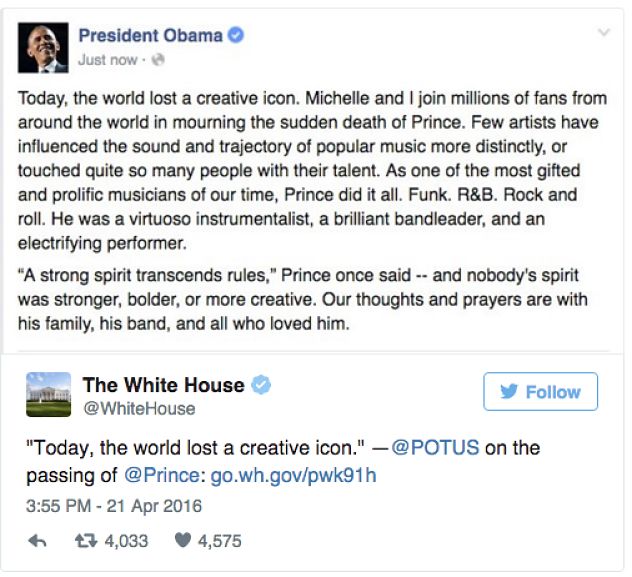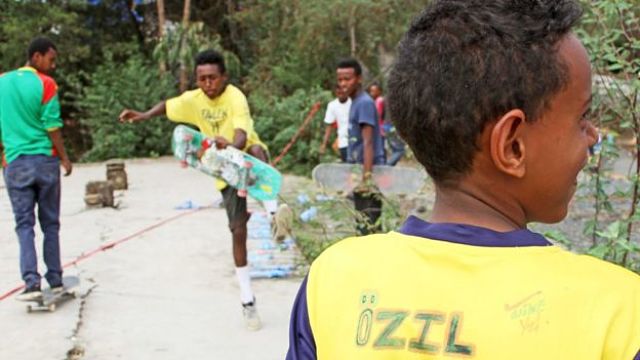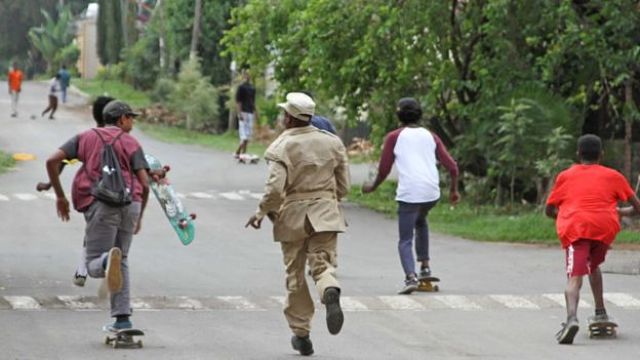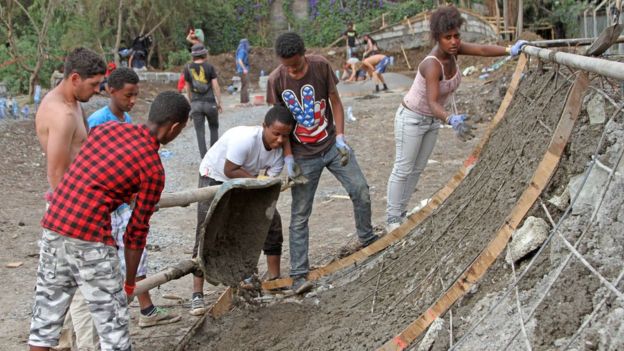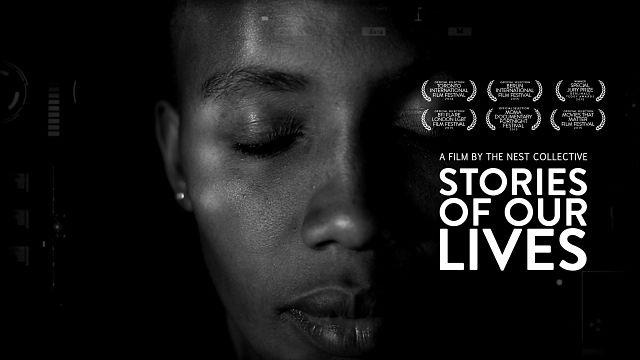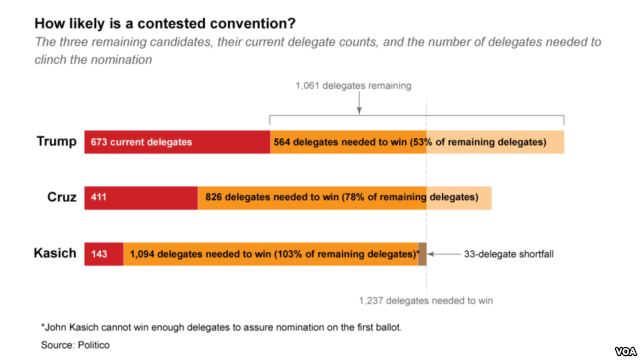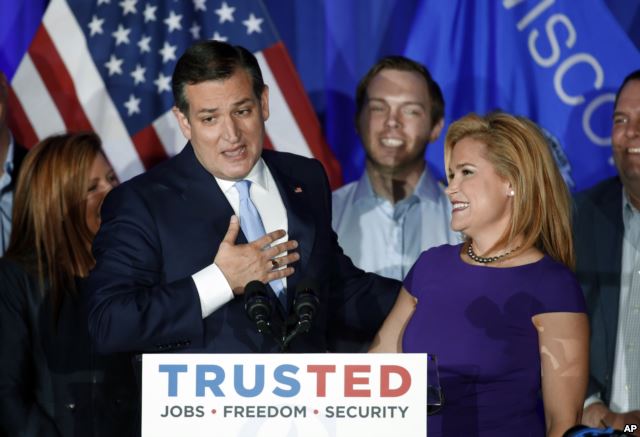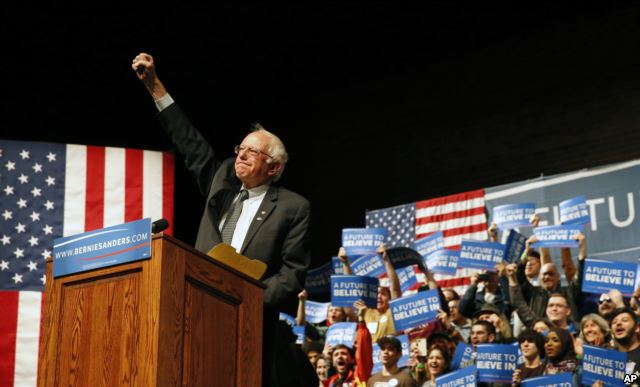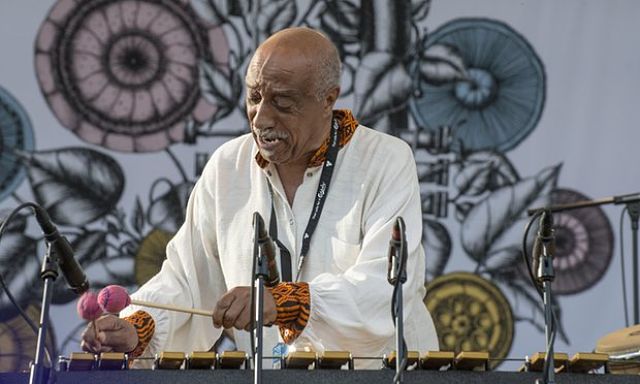VOA News
By Mary Alice Salinas
Last updated: March 22, 2016
HAVANA — U.S. President Barack Obama on Tuesday acknowledged the difficult history between the U.S. and Cuba, but offered a “message of peace” to the Cuban people as he neared the end of a landmark visit to the communist country.
“Havana is only 90 miles (145 kilometers) from Florida, but to get here we had to travel a great distance over barriers of history and ideology, barriers of pain and separation,” Obama told a crowd at the historic El Gran Teatra de Havana.
Obama said the differences between the Washington and Havana governments “are real and they are important,” but he said both sides can still move forward with a historic normalization of relations.
‘Bury the last remnant’
“I have come here to bury the last remnant of the Cold War in the Americas,” Obama declared confidently, as Cuban President Raul Castro looked on from an upper balcony. “I have come here to extend the hand of friendship to the Cuban people.”
WATCH: President Obama addresses Cuban people from Havana
Obama also called for an end to the decades-old U.S. economic embargo on Cuba, which he called an “outdated burden” on the Cuban people. “It’s time to lift the embargo,” he said.
But the president also forcefully criticized the Cuban government, saying even if the embargo were lifted, the Cuban people would still not be able to live up to their potential without democratic reforms.
“People should be able to criticize their government and choose those who govern them,” said Obama. He also called for citizens to be able to “speak their minds without fear.”
Ryan’s reaction
In Washington, U.S. House of Representatives Speaker Paul Ryan condemned Obama’s visit to Cuba, telling Reuters news agency the trip legitimizes the “tyrannical dictatorship” of Castro.
Ryan made his remarks to reporters as Obama was wrapping up his historic visit to Havana — a trip that has been marked by clashes between the American and Cuban leaders over human rights abuses.
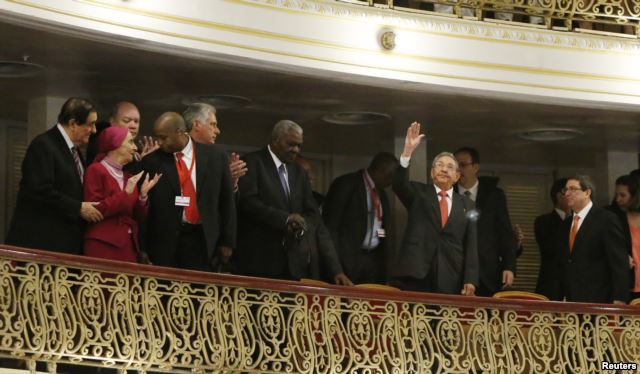
Cuba’s President Raul Castro waves to the audience as he takes his seat near Cuba’s prima ballerina, Alicia Alonso, second left, before U.S. President Barack Obama speaks at the Gran Teatro, in Havana, Cuba, March 22, 2016. (Photo: Reuters)
Obama began his speech by addressing the horrific attacks earlier Tuesday in Brussels, where dozens of people were killed in explosions at the airport and a metro station. He began his speech by saying the U.S. stands in solidarity with Belgium and “will do whatever is necessary … to bring those who are responsible to justice.”
Later Tuesday, Obama will attend a baseball game between Major League Baseball’s Tampa Bay Rays and the Cuban national team, to be played at 2 p.m. EDT (1800 UTC) at Estadio Latinoamericano.
Talks with Castro
On Monday, Obama hailed the progress in U.S.-Cuba relations while acknowledging that the two sides continue to have “very serious” differences on democracy and human rights.
After “frank and candid” talks in Havana on ways to advance normalization efforts, Obama and Castro held a joint news conference.
“This is a time of hope for Cuba,” Obama told reporters.
The U.S. leader said while he made it “clear” to Castro that the U.S. would continue to speak out on human rights, “Cuba’s destiny will not be decided by the United States or any other nation. The future of Cuba will be decided by Cubans.”
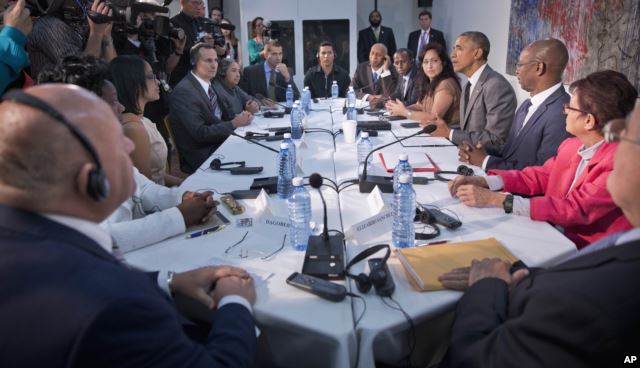
President Barack Obama meets with dissidents and other local Cubans at the U.S. Embassy, in Havana, Cuba, March 22, 2016. (AP photo)
In a rare event, Castro agreed to take questions from journalists after the two leaders’ remarks.
After being questioned about political prisoners, Castro reacted angrily. He demanded to be shown a list of such detainees. Cuba’s position is that it holds no such prisoners.
“Give me a list of those political prisoners right now, and if the list exists, they will be released before the night is through,” Castro said.
‘Forgotten 51’
In Washington, D.C., Marion Smith, executive director of the Victims of Communism Memorial Foundation, reacted to Castro’s comments by saying, “We have that list, President Castro.”
Last week, before Obama’s trip to Havana, the group provided a list of jailed dissidents, called “The Forgotten 51,” to major networks and reporters.
At a briefing for reporters in Havana later in the day, White House deputy national security adviser Ben Rhodes said he has shared with Cuban authorities many lists of political prisoners over the last 2½ years.
Rhodes said the U.S. regularly raises cases of specific political prisoners, and that many of the cases have been resolved. But he said Cuba insists that it doesn’t consider them political prisoners, and that the prisoners are being held for different crimes.
In his remarks, Castro welcomed the easing of trade and travel restrictions announced by Washington, but stressed the need for action to lift a 55-year trade embargo on the communist country. Castro also called on the U.S. to return land used for the U.S. naval base at Guantanamo Bay.
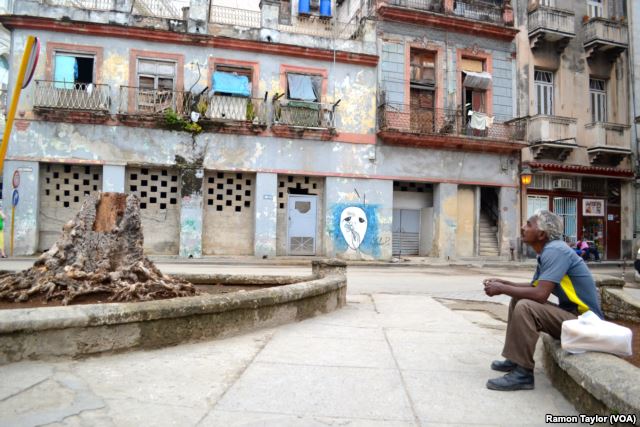
A man takes a cigarette break in Plazuela de Albear, three blocks from “el capitolio,” in Havana, Cuba, March 21, 2016. (VOA photo)
The U.S. trade embargo on Cuba can only be lifted by the Republican controlled Congress, where there is disagreement about Obama’s policy shift from isolation to engagement with Cuba.
Cuban policy
President Obama made the historic visit to Cuba early in his final year in office in a bid to make Washington’s new approach toward Cuba essentially irreversible, the White House says.
To push it beyond Obama’s final year in office, the president needs bipartisan support. Obama took along a delegation of nearly 40 lawmakers, both Republicans and Democrats.
He said lawmakers are more likely to support it when they see progress under the new Cuba policy. He also said the pace of normalization will also depend on how much progress Cuba makes on human rights issues.
“The embargo is going to end,” Obama predicted during the joint appearance. “When? I can’t be entirely sure, but it will end,” said the president.
Cubans use payphones on Consulado side street across from Havana’s Capitol building. (VOA photo)
Obama and Castro shook hands before going into talks at the Revolutionary Palace, one day after Obama became the first sitting U.S. president in nearly 90 years to arrive in the island nation.
Earlier Monday, Obama attended a wreath laying ceremony at the monument of the Cuban independence hero Jose Marti at the Plaza of the Revolution.
“It is a great honor to pay tribute to Jose Marti, who gave his life for independence of his homeland. His passion for liberty, freedom and self-determination lives on in the Cuban people today, ” Obama wrote in a guest book.
Cubans cheer
Throughout Havana on Sunday, people lined the streets as the U.S. president’s motorcade rolled by following his arrival, with crowds waving, cheering, blowing kisses and chanting Obama’s name.
At a gathering of several hundred Cuban entrepreneurs and U.S. business people in Havana Monday, Obama said the United States wants to help Cuban entrepreneurs, and that the best way to do this is for the U.S. Congress to lift the trade embargo against Cuba “once and for all.”
He told the gathering “America wants to be your partner.”
William Gallo in Washington, Victoria Macchi in Havana and Aru Pande at the White House contributed to this report.
WATCH: Obama, Castro Hold Joint News Conference
By Mary Alice Salinas
Last updated on: March 21, 2016
HAVANA — U.S. President Barack Obama Monday hailed the progress in relations between the United States and Cuba, while acknowledging that the two sides continue to have “very serious” differences on democracy and human rights.
After “frank and candid” talks in Havana on ways to advance normalization efforts, Obama and Cuban President Raul Castro held a joint news conference.
“This is a time of hope for Cuba,” Obama told reporters.
‘Decided by Cubans’
The U.S. leader said while he made it “clear” to Castro that the U.S. would continue to speak out on human rights, “Cuba’s destiny will not be decided by the United States or any other nation. The future of Cuba will be decided by Cubans.”
In a rare event, Castro agreed to take questions from journalists after the two leaders’ remarks.
After being questioned about political prisoners, Castro reacted angrily. He demanded to be shown a list of such detainees. Cuba’s position is that it holds no such prisoners.
“Give me a list of those political prisoners right now, and if the list exists, they will be released before the night is through,” Castro said.
Carson: Lists have been shared
In Washington, D.C., Marion Smith, executive director of the Victims of Communism Memorial Foundation, reacted to Castro’s comments, saying, “We have that list, President Castro.”
Last week, before Obama’s trip to Havana, the group provided a list of jailed dissidents, called “The Forgotten 51,” to major networks and reporters.
At a briefing for reporters in Havana later in the day, White House deputy national security adviser Ben Rhodes said he has shared with Cuban authorities many lists of political prisoners over the last two and a-half years.
Rhodes said the U.S. regularly raises cases of specific political prisoners, and that many of the cases have been resolved. But he said Cuba insists that it doesn’t consider them political prisoners, and that the prisoners are being held for different crimes.
“I think the heart of the difference with President Castro is not their lack of awareness of these individuals and how we follow their cases and how independent organizations follow their cases,” Rhodes said. “It is their belief that they are not political prisoners…that they are in prison for various crimes and offenses against Cuban law.”
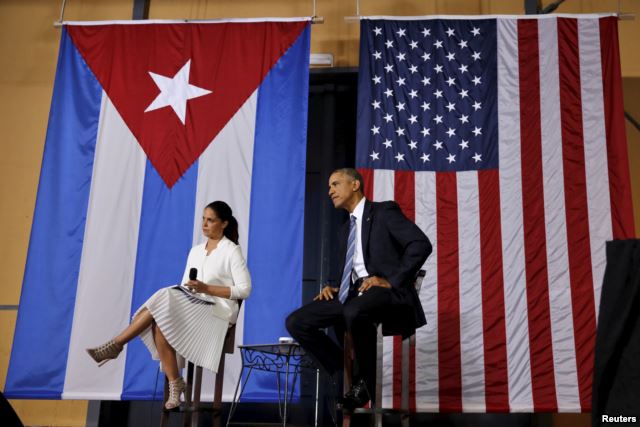
U.S. President Barack Obama attends a meeting with entrepreneurs as part of his three-day visit to Cuba, in Havana, March 21, 2016. (Reuters)
In his remarks, Castro welcomed the easing of trade and travel restrictions announced by Washington, but stressed the need for action to lift a 55-year trade embargo on the communist country. Castro also called on the U.S. to return land used for the U.S. naval base at Guantanamo Bay.
The U.S trade embargo on Cuba has to be lifted by the Republican controlled Congress, where there is disagreement about Obama’s policy shift from isolation to engagement with Cuba.
New approach irreversible
President Obama made the historic visit to Cuba early in his final year in office in a bid to make Washington’s new approach toward Cuba essentially irreversible, the White House says.
To push it beyond Obama’s final year in office, the president needs bipartisan support. Obama took along a delegation of nearly 40 lawmakers, both Republicans and Democrats.
He said lawmakers are more likely to support it when they see progress under the new Cuba policy. He also said the pace of normalization will also depend on how much progress Cuba makes on human rights issues.
The embargo is going to come,” Obama predicted during the joint appearance. “When? I can’t be entirely sure, but it will end.”
Obama and Castro shook hands before going into talks at the Revolutionary Palace, one day after Obama became the first sitting U.S. president in nearly 90 years to arrive in the island nation.
Day in Havana
Earlier in the day, Obama attended a wreath laying ceremony at the monument of the Cuban independence hero Jose Marti at the Plaza of the Revolution.
“It is a great honor to pay tribute to Jose Marti, who gave his life for independence of his homeland. His passion for liberty, freedom and self-determination lives on in the Cuban people today, ” Obama wrote in a guest book.
Throughout Havana on Sunday, people lined the streets as the U.S. president’s motorcade rolled by following his arrival, with crowds waving, cheering, blowing kisses and chanting Obama’s name.
‘America wants to be your partner’
At a gathering of several hundred Cuban entrepreneurs and U.S. business people in Havana Monday, Obama said the United States wants to help Cuban entrepreneurs, and that the best way to do this is for the U.S. Congress to lift the trade embargo against Cuba “once and for all.”
He told the gathering “America wants to be your partner.”
The highlight of his trip though, according to the White House, will be an address the U.S. leader will deliver to the Cuban people on Tuesday. He is expected to speak about the difficult and complicated history between the two nations, the current course to normalize relations and his vision for future relations between the former Cold War enemies.
State dinner
The Obamas attended a state dinner late Monday at the Revolutionary Palace. Several members of Congress, including House Democratic Minority Leader Nancy Pelosi, also attended.
Guests were served shrimp mousse, cream soup flavored with rum, and traditional pork with rice and plantain chips, the Associated Press reported, and servers had a tray of Cuban cigars for the guests.
But the highlight of the trip, according to the White House, will be an address he will deliver to the Cuban people on Tuesday.
He is expected to speak about the difficult and complicated history between the two nations, the current course to normalize relations and his vision for future relations between the former Cold War enemies.
—
Related:
Proud of Obama’s Presidency, Blacks Are Sad to See Him Go
Join the conversation on Twitter and Facebook.

